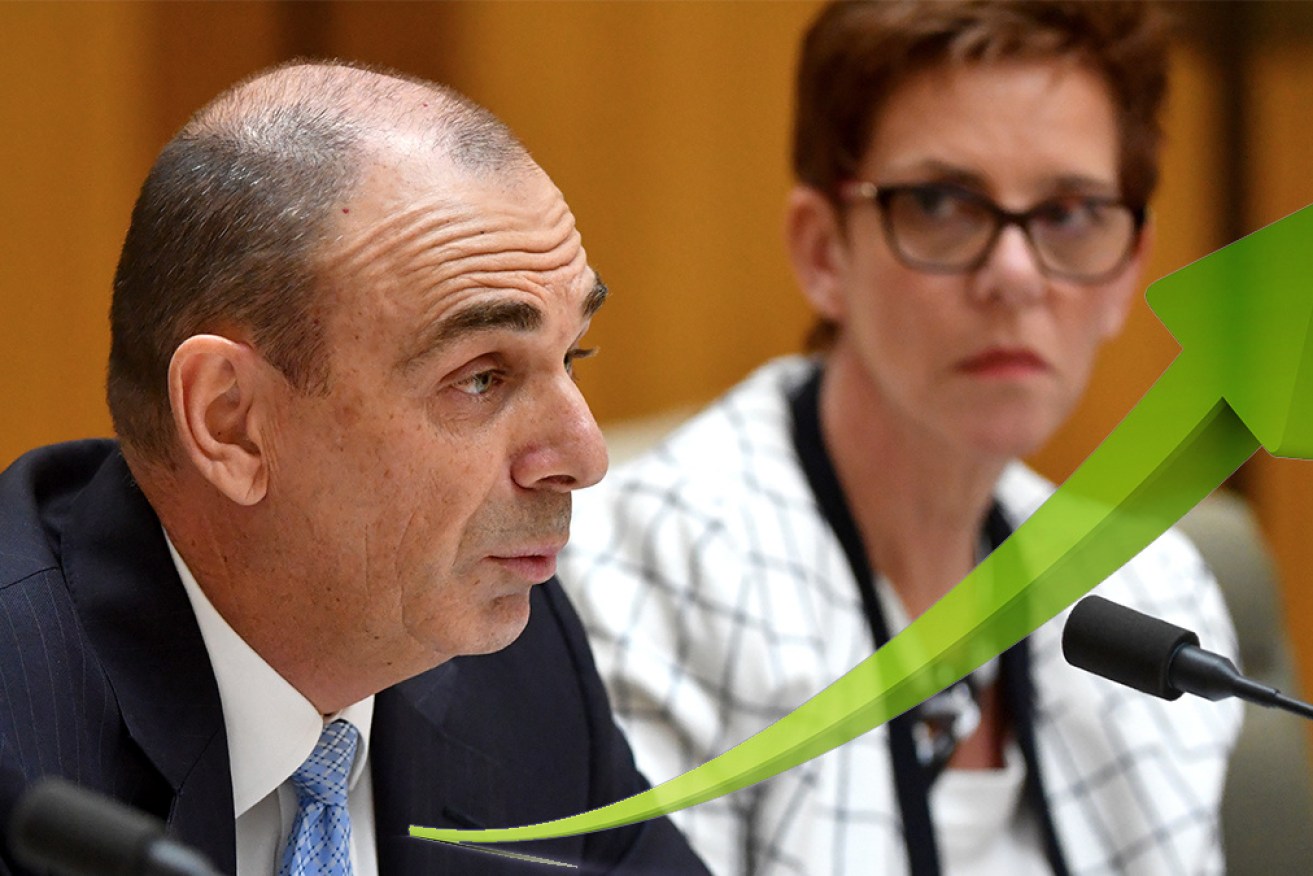Superannuation stages tentative recovery after worst-ever quarter


APRA chair Wayne Byres and deputy Helen Rowell believe super withdrawals will increase in July. Photo: TND
Superannuation funds have followed the dramatic recovery in global sharemarkets in recent days, with Chant West data showing returns to members are down just 1.1 per cent for the current financial year.
The improvement since April comes after super funds recorded their worst quarterly returns since financial regulator APRA began keeping records 15 years ago, thanks to a collapse in global sharemarkets.
AustralianSuper CEO Ian Silk said in a letter to members of the $172 billion fund they should expect “this volatility to continue for some months until there is greater certainty around the pathway to recovery”.
But he also noted that, “while history tells us we can expect a negative annual return about once in every four to five years, this financial year is likely to be the first negative return for the balanced option in the last 11 years – since the Global Financial Crisis period.”
Chant West researcher Mano Mohankumar struck a more optimistic note – telling The New Daily that “in the month to date, funds are up 2.3 per cent and since the end of March they have risen 5.3 per cent”.
Funds could finish the financial year in positive territory,” Mr Mohankumar said.
The recovery means that, despite Australia suffering the worst economic shock since the Great Depression, the average balance held by men in the run up to retirement is down just $3600 since December ($332,700).
Meanwhile, the average balance held by females nearing retirement has fallen just $3000 since December ($245,100) – a figure that shouldn’t frighten retirees too much if markets even hold where they are today.
But although Australia’s sharemarket recovery has been strong, with the index up 27 per cent from its March low, it has lagged the US where the broad S&P 500 index has risen 35 per cent from its March low.
Mr Silk told members that 200,000 members, about 10 per cent of AustralianSuper’s more than two million total, had withdrawn funds under the government’s coronavirus early release scheme.
That is roughly in line with the national average.
According to the latest figures from financial regulator APRA, 1.41 million of the nation’s 14.8 million super fund members have withdrawn an average of $7510, for a total of $11 billion.
Rate slowed for now
APRA deputy chair Helen Rowell told a senate committee on Thursday that although early withdrawals had not been as high as the government anticipated ($13.5 billion in the first tranche to June 30), she expected to see an “uptick towards the end of the first phase of the scheme”.
Eligible members will be allowed to withdraw a second tranche of $10,000 in the first three months of the next financial year.
Paying bills and adding to savings
According to the latest Australian Bureau of Statistics data, 57 per cent of those making early withdrawals under the scheme used or planned to use the money to pay their mortgage, rent, debts or other household bills.
Another 36 per cent added or planned to add their withdrawal to savings.
The data suggests, then, that only 7 per cent of people may use the funds for frivolous consumption.

The numbers of employed working paid hours increased in May. Source: ABS
The ABS also found that 9 per cent of people who did not have a job in mid-May had applied for early withdrawal, compared to 3 per cent who were employed.
Industry Super Australia chief economist Stephen Anthony said the economic outlook appeared to be improving.
“The loss of GDP in the first quarter is likely to be over 1 per cent and in the second quarter over 4 per cent,” Dr Anthony said.
“There is hope that unemployment can be pushed below 9 per cent because we are having a better performance than other economies.”
Reserve Bank governor Philip Lowe confirmed to the Senate committee on Thursday that “it’s entirely possible that the economic downturn will not be as severe as earlier thought”.
 APRA also released data showing that consolidation of superannuation funds was continuing, though the regulator is calling for more mergers to improve financial returns for members.
APRA also released data showing that consolidation of superannuation funds was continuing, though the regulator is calling for more mergers to improve financial returns for members.
“Mergers are often stalled or abandoned by trustees that appear to take an overly narrow or restrictive interpretation of the legislation governing mergers,” the regulator said in its Quarterly Insights publication.
The New Daily is owned by Industry Super Holdings








